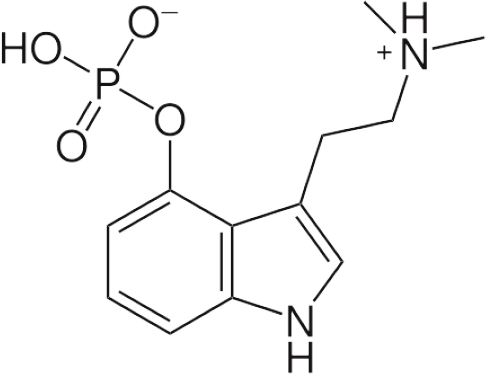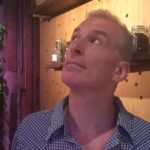Psilocybin is a naturally occurring psychedelic compound found in certain species of mushrooms. Psilocybin can also be synthesized in a lab. Indigenous peoples have used psilocybin as a sacred plant medicine for healing and spiritual purposes for thousands of years. Psilocybin is currently a Schedule I controlled substance in the U.S. and illegal to possess or distribute under federal law. A number of localities have decriminalized psilocybin and two states are creating legal frameworks for supervised adult use.
Psilocybin is being studied for use in psychedelic-assisted therapies to address a range of medical conditions, including end-of-life anxiety, depression, addiction, and eating disorders. It is also being used in scientific studies to assess the mystical experience, or a greater connection to the divine as experienced by some users. Synthetic psilocybin used in psychedelic-assisted therapies has been fast tracked by the FDA to be approved as a possible prescription medication and is used as a therapeutic tool by underground therapists. Psilocybin is also used as a substance for personal use that can be ingested as a full dose or microdosed for the enhancement of mood, executive function, focus, productivity, and creativity.

Psilocybin
Things to Know
- Psilocybin is a compound in psychedelic fungi, which are also known as “magic mushrooms” or “shroom.”
- Studies have shown that psilocybin-assisted therapy can be an effective treatment for conditions including depression, anxiety, and eating disorders.
- Psilocybin is illegal in most U.S. jurisdictions, but has been decriminalized in 15 cities and states.
- The use of psilocybin by indigenous cultures has been documented dating back 6,000 years.
Psilocybin Benefits
There are many positive reasons why someone might explore psilocybin—as well as many reasons to heed caution. Among some of the benefits listed above, psilocybin could be effective in treating a range of mental health conditions, including depression, anxiety, addiction, and PTSD, as well as increasing creativity, enhancing spirituality, and improving overall wellbeing. Psilocybin carries a low potential for addiction, or any physiological toxic effects (in fact it’s impossible to lethally overdose).
Read about psilocybin benefits.Psilocybin Risks and Safety Considerations
Psilocybin mushrooms are not necessarily for everyone. Some people who use them will experience profound relief from anxiety and stress, while others may consume the same amount and have a dysphoric or difficult experience. A good approach is to start low and go slow when initially consuming psilocybin mushrooms.
Psilocybin mushrooms are not necessarily for everyone. Some people who use them will experience profound relief from anxiety and stress, while others may consume the same amount and have a dysphoric or difficult experience. A good approach is to start low and go slow when initially consuming psilocybin mushrooms.
It’s crucial to honestly assess your psychological health and mental state prior to consuming these mushrooms in order to ensure your “set,” or mindset, is prepared to handle the psychedelic terrain. It is also important to choose a situation and environment where you feel supported in the event that you experience a challenging journey.
Read about psilocybin risks and safety considerations.Psilocybin-Assisted Therapy
Over the past decade, psilocybin-assisted therapy has received increasing attention as potentially one of the most effective treatments for depression. While researchers continue to study the efficacy of this therapy, research strongly suggests that psilocybin-assisted therapy could have long-lasting positive effects on numerous mental health conditions.
Read about psilocybin-assisted therapy.Psilocybin for Conditions
In FDA-approved clinical trials, psilocybin is showing promise as a treatment for major depressive disorder. While the exact mechanisms explaining its efficacy are not yet fully understood, researchers are looking to the compound’s ability to engender an increased sense of mindfulness, a connection to mysticism, increased neuroplasticity (especially in areas of the brain associated with mood regulation and emotional processing), and the activation of serotonin receptors (which are involved in regulating mood, anxiety, and other emotional processes), among other reasons, why psilocybin might be an effective treatment, in certain individuals undergoing full-scale therapy protocols. At the present moment, both the nonprofit research institute Usona as well as the for-profit pharmaceutical company Compass Pathways have been fast-tracked by the FDA to pursue psilocybin drug development as a treatment for Major Depressive Disorder.
Read about psilocybin for conditions.Psilocybin Science and Research
Just how exactly psilocybin functions in the brain and body is a topic that continues to fascinate scientists. We know for sure that psilocybin is a tryptamine, meaning that it acts on the serotonin 2a receptors, quieting activity in the brain’s default mode network, while increasing activity and connectivity throughout various other regions of the brain. Today, scientists at academic institutions including Johns Hopkins and NYU, or for-profit pharmaceutical companies like Compass Pathways, are investigating the promise of psilocybin for a variety of mental health conditions, with the permission of the FDA. In fact, psilocybin (in synthetic form, and utilized in psychedelic-assisted psychotherapy according to specific protocols) has been fast-tracked by the FDA to soon become a prescription medication in therapy to treat major depression. Indeed, scientists are exploring a range of indications for psilocybin, as well as investigating how it works on physiological, psychiatric, and even spiritual levels.
Read about psilocybin science and research.Psilocybin Legality
Psilocybin is illegal in most countries around the world, including the US on a federal level, however there are some local jurisdictions and contexts that have lifted prohibition around this compound. In the state of Oregon, psilocybin for therapeutic use, is legal in licensed contexts. Other localities like Denver, Oakland, Ann Arbor, and several others have decriminalized psilocybin mushrooms through initiative spearheaded by grassroots groups like Decriminalize Nature, an activist organization with independent local chapters around the country. In Canada, the health department has granted exemptions to terminally ill patients seeking end-of-life care, and in the US, psilocybin is approved by the FDA in clinical trials exploring it as a mental health treatment.
Read about psilocybin mushroom legality.How to Take Psilocybin Mushrooms
People take psilocybin in various forms, whether by consuming whole fungi, brewing it into tea or cooking it into chocolates, gummies or some other food item, taking it ground up in a capsule, or consuming it in its synthetic form through a pill.
A “full dose” of psilocybin is considered to be an eighth of an ounce or about 3.5 grams, however this varies depending on the potency of the actual mushroom material, and the intentions of the individual.
The effects of psilocybin last anywhere from four to eight hours, depending on how much you take and other physiological variables specific to the individual. And the effects themselves can vary from visual and auditory hallucinations to euphoria, fear, disorientation, loss of usual senses of time or self, feelings of awe, and much more.
Read about how to take psilocybin mushrooms.Microdosing Psilocybin
Microdosing mushrooms entails taking a small, sub-perceptual dose a few times a week over an extended period of time. In the case of psilocybin, an average microdose is about .25 grams, often taken with the goal of improving overall wellbeing, increasing focus, or enhancing mood, while decreasing ailments like anxiety or depression. Microdosing is believed to increase neuroplasticity and is generally considered to be safe. The protocols for microdosing vary according to the method one uses, but generally follow a regimen such as one day on, two days off.
Read about microdosing psilocybin mushrooms.Taking Psilocybin Mushrooms in Combination with Other Substances
It is not uncommon for people to consume psilocybin mushrooms with other drugs to create an amplified psychedelic effect. The most common combinations are psilocybin mushrooms and MDMA, known as a hippie flip; psilocybin mushrooms, MDMA, and LSD, colloquially called a Jedi flip; and psilocybin mushrooms and cannabis.
Read about taking psilocybin mushrooms in combination with other substances.History of Psilocybin
The history of psilocybin is long and varied. In indigenous contexts, it has been used for religious and medicinal purposes for thousands of years. From ancient Buddhists to Mazatec curanderas, these cultures viewed mushrooms as sacred and used them in healing, spiritual ceremonies. In the mid 20th century, psilocybin came into the Western view through the research of amateur mycologist R. Gordon Wasson, who traveled to Mexico where he was introduced to magic mushrooms, which he later wrote about for TIME Magazine, inspiring countercultural icons such as Timothy Leary, who went on to conduct research on the compound at Harvard. Until the late 1960s, psilocybin was legal in the US, before President Richard Nixon launched the Drug War, quashing then active and promising science. Only in recent years has research seen a resurgence, while in the mainstream culture at large, psilocybin is picking up steam as a safe, alternative mental health treatment to pharmaceutical medications.
Read about psilcybin mushroom history.Psilocybin and Spirituality
Since what seems like the beginning of time, psilocybin has been associated with spirituality, used for shamanic purposes and viewed as sacred and healing. Its ability to induce altered states and feelings of divine connection corroborate recent scientific research investigating the “mystical experience,” brought on by substances like psilocybin and comparable to accounts of spirituality described by mystics around the world, for the past several centuries. Associated with religious rituals, and spiritual insights, the mystical side of psilocybin is also found to be a component in its healing capacity, linked to better outcomes in research investigating the compound for conditions like anxiety and depression. While psilocybin is often used in secular contexts, it’s important to note that many people—from indigenous traditions, as well as Abrahamic religions—use psilocybin in spiritual and religious contexts in the present day.
Read about psilocybin mushrooms and spirituality.






